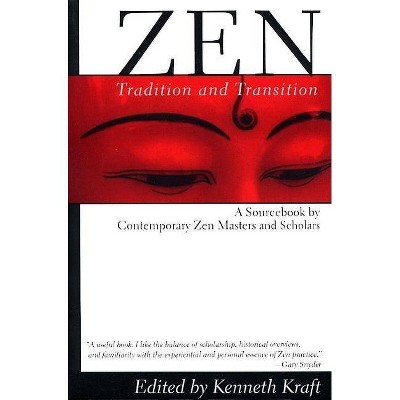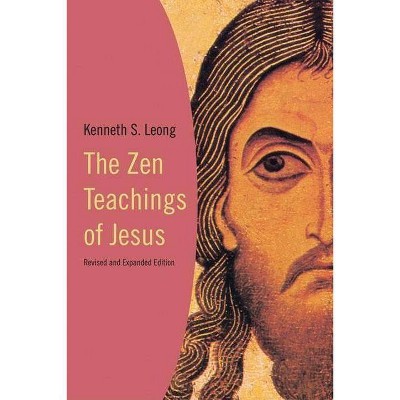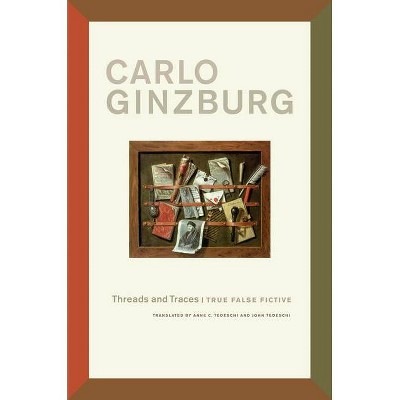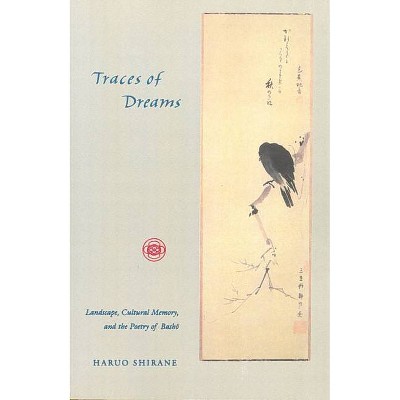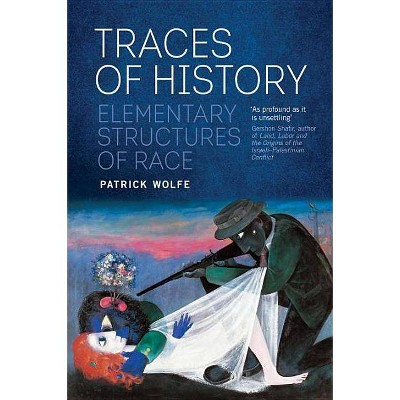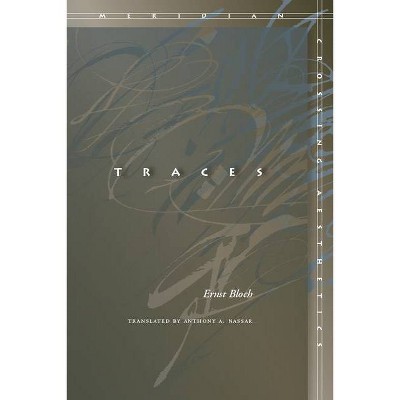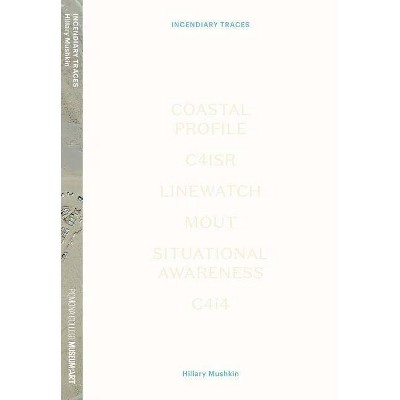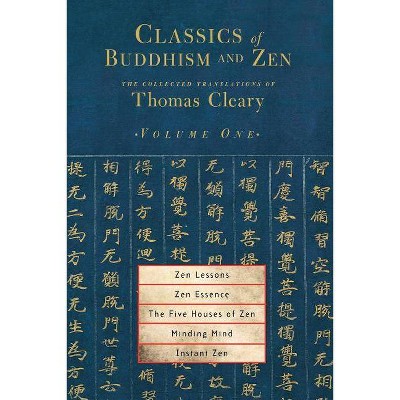Zen Traces - by Kenneth Kraft (Paperback)
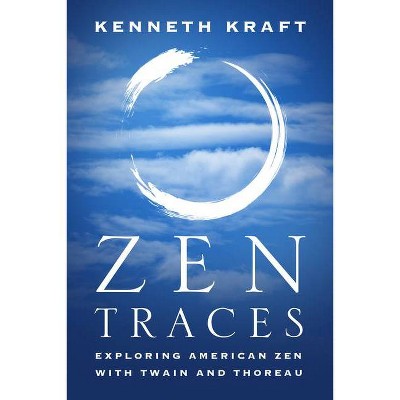
Similar Products
Products of same category from the store
AllProduct info
<p/><br></br><p><b> About the Book </b></p></br></br>"As Zen takes root in the west, new forms arise. For centuries Zen masters have tested their students with "koans" and "capping phrases." A koan is a spiritual paradox that must be solved intuitively. A capping phrase is a trenchant comment. Both are meditative practices that reveal deeper truths about the self and, ideally, lead to enlightenment. In Zen Traces, Buddhist scholar Kenneth Kraft plays off these practices in a new idiom. He selects passages from four sources: traditional Zen, present-day Zen, Henry David Thoreau, and Mark Twain. When a koan-like story about a contemporary Zen teacher is paired with a pithy comment by Mark Twain, something fresh emerges"--Back cover.<p/><br></br><p><b> Book Synopsis </b></p></br></br><p><b>Kraft rubs together these pithy thoughts and phrases from traditional and present-day Zen with the sayings of Henry-David Thoreau and Mark Twain to come up with fresh portals of spiritual openness.--<i>Spirituality & Practice</i></b></p><p>As Zen takes root in the west, new forms arise. For centuries Zen masters have tested their students with "koans" and "capping phrases." A koan is a spiritual paradox that must be solved intuitively. A capping phrase is a trenchant comment. Both are meditative practices that reveal deeper truths about the self and, ideally, lead to enlightenment.</p> <p>In <i>Zen Traces</i>, Buddhist scholar Kenneth Kraft plays off these practices in a new idiom. He selects passages from four sources: traditional Zen, present-day Zen, Henry David Thoreau, and Mark Twain. When a koan-like story about a contemporary Zen teacher is paired with a pithy comment by Mark Twain, something fresh emerges.</p><p/><br></br><p><b> Review Quotes </b></p></br></br><br><p>What is most interesting about the book is how it indicates the timelessness of writing, whether it is traditional Zen koans and capping phrases, 19th century literature, or contemporary capping phrases. It does not try to distinguish between these different sources in terms of quality and content. Instead, it indicates the power of writing, the universal nature of being human, and the timeless aspiration to find answers to life's questions . . . The premise of the universal and timeless nature of Zen practices is illustrated beautifully, and is an open invitation to other scholars to take up the same challenge as Kraft."--<i><b>Reading Religion</i></b></p><p>In 1999, we discovered Kraft's book where he mapped out a path of Buddhism in ten parts. 'Spiritual practice, ' he noted, 'has to be flexible, diverse, and inventive.' He has kept his creative and spiritual flair alive with this paperback. Here koans and capping phrases of Zen masters are used to enlighten. Best of all, Kraft rubs together these pithy thoughts and phrases from traditional and present-day Zen with the sayings of Henry-David Thoreau and Mark Twain to come up with fresh portals of spiritual openness."--<i><b>Spirituality & Practice</i></b></p><p>"In this lovely book, Ken Kraft provides a unique opening for American Buddhism and American wisdom, in general. The reader will come to fresh and spacious new insights (and enjoyments) . . . Cheers for Zen in America and a deep bow to Ken Kraft!"--<b>Polly Young-Eisendrath, Ph.D., author of <i>The Present Heart: A Memoir of Love, Loss and Discovery</i></b></p><p>"I highly recommend this delightful book of East-West wisdom--full of surprise, insight, wit, and piercing beauty."--<b>Katy Butler, author of <i>Knocking on Heaven's Door: The Path to a Better Way of Death</i></b></p><br><p/><br></br><p><b> About the Author </b></p></br></br><b>Kenneth Kraft</b>, professor emeritus of religious studies at Lehigh University, is a scholar of Japanese Zen and socially engaged Buddhism. He is the author or editor of six books, including <i>Eloquent Zen, Zen: Tradition and Transition</i>, and <i>Dharma Rain: Sources of Buddhist Environmentalism</i>. Kraft holds a Ph.D. in East Asian Studies from Princeton University, an M.A. in Asian Languages and Cultures from the University of Michigan, and a B.A. from Harvard University.
Price History
Price Archive shows prices from various stores, lets you see history and find the cheapest. There is no actual sale on the website. For all support, inquiry and suggestion messages communication@pricearchive.us
